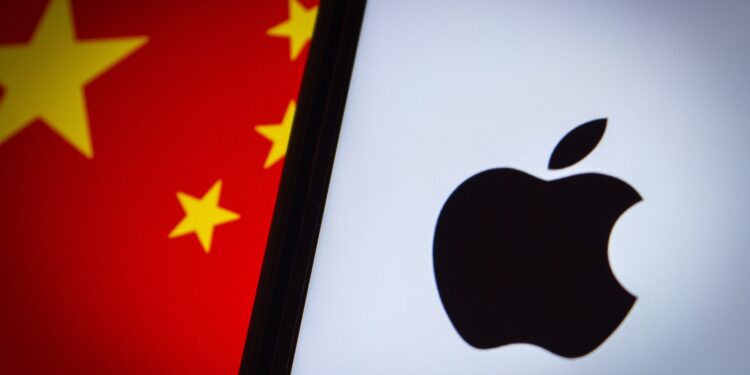Apple wants to take the next big step with Apple Intelligence. The new AI features are designed to make iPhones and other Apple devices significantly more powerful and personalized. The global rollout is already underway – only China remains excluded. Although Apple is technically ready and is even working with a local partner, Apple Intelligence will not be launched there. The reason for this lies with the Chinese authorities. This isn't about technology, but about politics – more specifically, about trade pressure between the US and China.
Apple Intelligence is already available in many parts of the world – in the US, Europe, Japan, and other markets. The new AI features are firmly integrated into iOS 18, iPadOS 18, and macOS Sequoia and are designed to make Apple devices significantly smarter. Whether text generation, summaries, intelligent context, or automated actions – much of this runs locally on the device, some in secure data centers with Apple's proprietary privacy architecture. But in China, these features are completely missing. And that's not because Apple has forgotten the market. The reason for the delay is political. The Chinese authorities are blocking the rollout – despite technical preparation and a partnership with Alibaba.
China is missing from the global launch – and this has political reasons
According to a report in the Financial Times, Apple Intelligence was specifically adapted for the Chinese market. Apple worked with Alibaba to comply with local regulations. The collaboration is necessary because China imposes strict rules on artificial intelligence, and US companies have little chance of launching AI services without local partners. Several jointly developed AI products were submitted for approval to the relevant Chinese authority, the Cyberspace Administration of China (CAC), this year. But to date, there has been no approval. The applications are stuck. Two people familiar with the matter say that geopolitical tensions between China and the US play a central role.
Apple and Alibaba – a partnership with obstacles
Apple made early efforts to adapt Apple Intelligence to Chinese requirements. It became clear that without a local partner, there was no chance. Alibaba provided the necessary infrastructure. Together, the two companies developed AI products that are intended to run on the new iPhone models in China. Everything is technically ready. But the authorities aren't playing ball. The delays aren't just bureaucratic. They appear deliberate. Apple and Alibaba are caught in the political crossfire. The trade conflict that began under Donald Trump continues to have repercussions. Tech companies are at the center of it. For Apple, this means that the launch of Apple Intelligence in China is on hold for the time being.
Apple under pressure: AI delay meets falling sales figures
Apple is already struggling with declining iPhone sales in China. Competition is fierce, especially from brands like Huawei. The delay in Apple Intelligence is making the situation more difficult. Users in China have to forgo new features, while millions around the world are enjoying the new AI. The situation is also tense with a view to the upcoming WWDC developer conference, where Apple plans to present further AI innovations related to iOS 26. The announcements will have less impact in China – because they have yet to be implemented there in practice.
Apple Intelligence is on hold
Apple Intelligence is ready for the market, including China. The partnership with Alibaba has been finalized, and the technical requirements have been met. But the political situation is preventing the launch. Chinese authorities are holding back approval – presumably not due to security concerns, but as part of a larger strategy in the ongoing trade conflict. If you live in China or rely on Apple products there, you should be prepared for delays. Apple can't currently do anything to accelerate the launch of Apple Intelligence. The decision rests with the authorities in Beijing. And as long as the political relationship between the US and China doesn't change, this blockade won't change either. (Image: Shutterstock / Koshiro K)
- ChatGPT becomes a super assistant: This is what OpenAI is planning now
- Apple defends itself against EU law – AirDrop in danger
- India overtakes China in iPhone exports to the US
- Apple slips to fourth place on the 2025 Fortune 500 list





